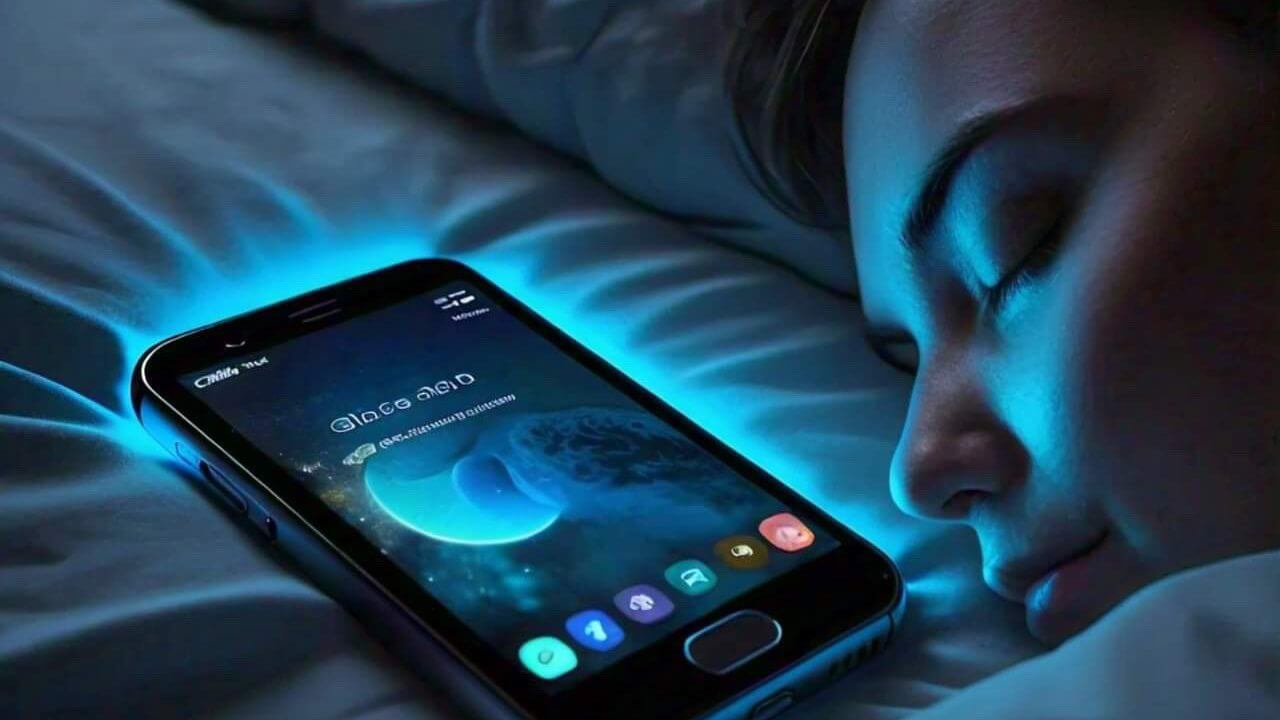Sleep-stealing blue light: Distance from screens and blue light is important, know how to save your sleep and health.

Blue Light effects on sleep :Sleep problems have become common these days. There can be many reasons for this and one of the main reasons is blue light. Blue light is especially emitted from digital devices such as smartphones, laptops, tablets and LED bulbs. It can affect the natural sleep cycle (circadian rhythm). When we work on smartphones, computers or other screens, we are directly exposed to blue light. The blue light seen on screens reduces melatonin production, which can make it difficult to fall asleep at night.
Many studies have found that melatonin production becomes difficult if we use electronic devices at night. Due to this, problem in sleeping may arise. Due to this, the quality of sleep can also be affected and we remain awake for a longer time. Overexposure to blue light can make it difficult for us to sleep at night and can have long-term effects such as fatigue, lack of sleep, and other mental health problems.
What is Blue Light?
Blue light is high-energy visible light (HEV) that falls in the blue wavelengths. It is emitted from sunlight, electronic devices such as smartphones, laptops, televisions and other screens. You may be surprised to learn that sunlight also contains blue light, but when it comes from artificial sources, prolonged exposure can have negative effects on sleep and health.
How does blue light affect sleep?
Melatonin is a natural hormone that is secreted by the pineal gland in our body at night or in the dark. This hormone regulates our sleep and wake cycles (circadian rhythm) and puts us to sleep. Melatonin production is higher in darkness and lower during the day. Blue light, especially light of 460–480 nanometer wavelengths, interferes with the production of the sleep-regulating hormone melatonin. Our eyes have a special type of photoreceptors, called topochymal receptors (ipRGCs). These receptors specifically recognize blue light and then send this signal to the brain. When we are exposed to blue light at night, these receptors send a message to our pineal gland that “this is not the time to sleep,” which reduces melatonin production.
effects of blue light on sleep
1. Inhibition of melatonin : Melatonin is a hormone that regulates sleep. When we are exposed to blue light on the screen, it inhibits the production of melatonin, which causes difficulty in sleeping. Spending more time in front of the screen at night reduces the production of this hormone, which can make it difficult for us to sleep.
2. Sleep cycle disturbances : Blue light affects our biological clock (circadian rhythm). This can interfere with our natural sleep and wake cycles, leading to poor sleep quality and making us feel tired even after sleeping.
3. Using screens for longer periods of time : Many researches have found that using screens late at night can increase the time of falling asleep, thereby reducing the duration of night sleep. Due to this the body does not get proper rest.
Why is it important to stay away from blue light
1. Promote healthy sleep: If you have less exposure to screens at night, it helps keep your melatonin levels under control, which improves your sleep quality.
2. Avoid other problems : Excessive exposure to blue light can affect eye health besides sleep. Its exposure can cause problems like eye fatigue, irritation and headache, which is called digital eye strain. Apart from this, there is a risk of many types of problems due to excessive screen time.
Ways to avoid blue light
1. Maintain distance from screens: Do not use electronic devices at least one hour before sleeping.
2. Blue Light Filter : Use blue light filter or night mode on smartphones and laptops.
3. Rest your eyes : Follow the 20-20-20 rule to rest your eyes regularly. Every 20 minutes, look at something 20 feet away from the screen for 20 seconds.
4. Blue Light Filter : Use the blue light filter or use night mode.
5. Create natural darkness: Maintain natural darkness so that melatonin can be produced properly.


Comments are closed.